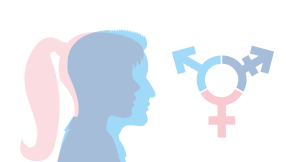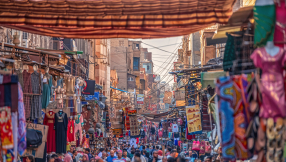
Place of birth shouldn't be the determining factor dictating the direction your future life will take. Sadly though the disproportionate effect of global inequality, as demonstrated in the World Inequality Report, continues to be a reality today.
Unfortunately, there are plenty of examples of global inequalities in my home country Togo. In Togo, one in 56 women will not survive childbirth and one in 20 babies do not reach their first birthday. This compares to a global child mortality rate of 3.7% and the situation in the UK where women have a one in 10,000 chance of dying in pregnancy and childbirth.
In this case, a UKAID grant has made a real and positive impact in Togo. Poverty is a significant challenge in Togo – especially in the rural areas where Compassion's projects are based. Here, approximately 55 per cent of households are living below the poverty line. This economic vulnerability, and the many hardships that come with it, have severe consequences for Togolese women and children.
In 2019, Compassion UK, along with match funding from the UK Government through UKAID, partnered together on a three-year, £1 million project to increase survival rates to help protect women during pregnancy and ensure their babies have the best start in life.
International aid funding helped to change the child survival statistics in my community. When Covid-19 hit in 2020, our work continued in the usual way through local community organisations and local churches being fully funded.
I am pleased to report that in 2022, the final year of Compassion's child survival programme, 695 babies were supported across 23 separate child survival sites in Togo. Ninety-six per cent of these births were attended by a skilled birth attendant, which is 30% above the national average. Ninety-two per cent of babies were at a normal birth weight, which is 8% above the national average. Of the babies currently under 6 months old, 89% are being exclusively breastfed – that's compared to the national average of 57.2%.
Looking beyond the numbers provides a powerful insight. I've been privileged to hear many first-hand stories of mothers and babies that now have a future, like Adjowa who had been introduced to the project in her seventh month of pregnancy when she became worried that she wasn't able to access enough food.
Her husband had been in a car accident that left him severely injured, and Adjowa had been laid off from her job as a cleaner, leaving them with no way to support themselves or their growing baby. She was able to receive reassurance at an initial prenatal check and received food kits and other necessary interventions.
But when the time came to give birth, her baby had stopped breathing. The midwives rushed her newborn away for life-saving treatment and the project took care of all the expenses. The baby's life was saved by the quick action and care of hospital staff and two weeks later, mother and daughter were both discharged in good health.
The period from conception to age two is a pivotal phase during which the foundations of a child's development are laid. If a child's body and brain develop well, then their life chances are improved. Time and time again I've seen the outworkings of this programme, supporting mothers and their babies for the first critical 1,000 days of the infant's life.
The project work also has an indirect impact on the families of babies and mothers enrolled in our programme. We provide food parcels, hygiene kits and educate mothers on children's health and nutrition to help support their whole family. Through this initiative we have been able to support over 3,250 participants indirectly.
Our final year of partnership with UKAID has ended but there is still much to do. With food costs increasing around the world because of the war in Ukraine, climate-related drought, and the impact of Covid-19, it's vital that our work can continue to ensure that mothers and their babies are given the best possible chance for a positive future. We need to help where we can and make a difference where possible.
The impact of international aid sometimes feels difficult to determine, but the practical results speak for themselves. In the last three years of this project, nearly 700 babies got a fair shot at life, and over 3,000 families were positively impacted. Beyond the numbers are real people and real families. I'm so glad we were able to help each of them.
Koffi Ahonon is National Director for Compassion Togo. If you would like to read more about the Impact of the Compassion Togo Child Survival Project with UK Aid Match click here













